laws by bam aquino
Sen. Bam files bill to empower OFWs to start businesses in the PH
Sen. Bam Aquino filed a bill to provide incentives and benefits to overseas Filipino workers (OFWs) who wish to start a business in the Philippines, following the suggestion of an OFW from Batangas City during a local consultation session.
“Ito’y isang reporma na hiniling mismo ng ating mga OFW. Marami sa kanila ay nais magkaroon ng kabuhayan sa Pilipinas at makapiling ang pamilya,” said Sen. Bam in his Senate Bill No. 2101 or the “Business Incentives for OFWs Act.”
“Isa sa mga pagkukunan ng kabuhayan ng ating OFWs ay ang pagkakaroon ng matagumpay na negosyo. Bigyan natin sila ng pagkakataong magkaroon ng kabuhayan sa Pilipinas upang makasama nila ang kanilang pamilya at makitang lumaki ang kanilang mga anak,” added Sen. Bam.
If enacted into law, OFW-owned enterprises will be given benefits and incentives once they decide to invest their hard-earned money in the Philippines, including exemption from payment of income tax for five years following registration.
Other benefits for an OFW-owned business enterprise include 50-percent reduction on real property taxes and tax and duty free importation of raw materials, capital equipment, machineries and spare parts exclusively used in the operation.
Enterprises owned by OFWs will also receive preferential access to financing from government financial institutions at rates below the market rates for five years following registration.
In the 17th Congress, Sen. Bam has filed several measures concerning the welfare of Filipino workers, including OFWs.
Sen. Bam filed Senate Bill No. 648 or the Migrant Workers and Overseas Filipino Assistance Act to boost support for the OFW community and the families they leave back home.
If passed into law, the measure integrates programs on livelihood, entrepreneurship, savings, investments and financial literacy to the existing efforts of embassies to equip OFWs with knowledge to start their own business.
Sen. Bam has 35 laws to his name, including the landmark free college law and the Go Negosyo Act, which has now established almost 1,000 Negosyo Centers in different parts of the country.
He has been a fierce advocate for entrepreneurship as a means to overcome poverty and provide livelihood to Filipino families.
Sen. Bam: Patibayin ang paghanga sa mga Pilipinong manunulat, ituro ang Panitikan sa kolehiyo
Sen. Bam Aquino questioned the Supreme Court’s decision excluding Panitikan and Filipino as core subjects in college, saying that we should strengthen our Filipino identity and appreciation for our national language.
“Sa kolehiyo lumalim ang pagmamahal ko sa bayan. Kaya mahalaga na hanggang tertiary level, tuluy-tuloy ang pag-aaral at pagpapalalim sa ating pagiging Pilipino, at malaking bahagi dito ang ating literatura,” said Sen. Bam, principal sponsor of the law granting free education in state universities and colleges.
Sen. Bam shared that it was in his college years that he became more aware of the country’s needs, and he emphasized that Filipino literature can help deepen the youth’s love and appreciation for the struggles, revolutions and victories of fellow Filipinos.
“Kilalanin at ipagmalaki natin ang mga kababayan nating makata’t manunulat na maaaring maging inspirasyon sa ating mga estudyante sa kolehiyo,” said Sen. Bam, vice chairman of the Committee on Education.
Sen. Bam pushed for the passage of Republic Act 10931 or the Universal Access to Quality Tertiary Education Act as principal sponsor during his time as chairman of the Committee on Education.
Currently, Sen. Bam is also pushing for other education-related measures, including Senate Bill No. 1278 or the Trabaho Center in Schools Act.
The measure aims to establish a job placement office in every public high school and SUC in the country, which will provide industry matching, career counseling, and employment facilitation.
Trabaho Centers must also address the skills mismatch and ensure employability of students upon graduation by using feedback from employers to better develop the school’s curriculum and training programs.
Overall, Sen. Bam has 35 laws to his name.
Sen. Bam continues education advocacy, dedicates new bills for Filipino teachers to his grandparents
Sen. Bam: Suspindihin, huwag dagdagan ang tax sa gasolina
Alarmed by the latest big-time oil price hike, Sen. Bam Aquino insists on implementing measures to suspend additional P2 excise tax on petroleum products scheduled for January 2019 under the Tax Reform for Acceleration and Inclusion (TRAIN) Law.
“Kung pumatak o humigit sa $80 kada bariles ang global prices ng krudo sa susunod na tatlong buwan, nasa batas na dapat suspindihin ang pagtaas ng buwis sa Enero 2019,” said Sen. Bam.
Sen. Bam was referring to a safeguard in the TRAIN Law where the excise tax on fuel will be suspended once the average Dubai crude oil price based on MOPS for 3 months prior to the scheduled increase reaches or exceeds $80 per barrel.
Sen. Bam added that the price of oil increased $80.8 per barrel today (Oct. 2).
“Bantayan po natin ang world prices at sumunod tayo sa nakasaad sa batas,” added Sen. Bam, who introduced the said measure of protection during deliberations on the TRAIN Law.
Meanwhile, Sen. Bam expressed alarm over statements by Budget Sec. Ben Diokno downplaying the effects of inflation on high prices of goods, especially food.
“Bigyan naman natin ng kaunting ginhawa ang mga kababayan nating nalulunod sa pagtaas ng presyo. Maghanap tayo ng paraan para arestuhin ang dagdag buwis sa petrolyo,” added Sen. Bam.
Sen. Bam is also pushing for the passage of Senate Bill No. 1798 or the Bawas Presyo Bill, which will suspend the collection of excise tax on fuel once inflation rate breaches the annual inflation target over a three-month period.
Sen. Bam helped the administration pass the law making college education free in public universities and colleges. He is the principal sponsor of R.A. 10931 or the Universal Access to Quality Tertiary Education Act.
Sen. Bam to SUC students: You have the right to free tuition and miscellaneous fees
Sen. Bam Aquino reminded students from state universities and colleges (SUCs) that the collection of tuition and miscellaneous fees is illegal.
“Isang taon na mula nang maisabatas ang Free College Law. Sa ilalim nito, karapatan niyong hindi magbayad ng tuition at miscellaneous fees sa SUCs,” said Sen. Bam, principal sponsor of Republic Act 10931 or the Universal Access to Quality Tertiary Education Act.
During dialogue with different sectors, Sen. Bam has received reports that some SUCs are still collecting miscellaneous and other mandatory fees from students.
“Kahit mayroon nang batas, may naririnig pa rin tayong ilang SUCs na hindi sumusunod dito at patuloy ang paniningil ng mga bayarin na hindi na dapat pang kinokolekta mula sa mga estudyante,” Sen. Bam insisted.
During the Commission on Higher Education’s budget hearing, Sen. Bam warned SUCs against collecting fees from students.
“If there are mandatory fees still being collected by the schools, that is illegal now,” said Sen. Bam.
In addition, Sen. Bam called on the government to fully implement the Free College Law, saying it should not deprive poor students a chance at a better life through education.
“Prayoridad dapat ang edukasyon. Ito ang susi sa kaunlaran ng pamilyang Pilipino,” said Sen. Bam, adding that the Free College Law will provide poor families respite from the high prices of goods and services.
“Lalo na ngayong matindi and pagtaas ng presyo, bigyan ng ginhawa ang mga Pilipino,” added Sen. Bam, who worked for the measure’s passage during his time as chairman of Committee on Education in the 17th Congress.
Republic Act 10931 provides free tuition and miscellaneous fees to students in state universities and colleges (SUCs), local universities and colleges (LUCs) and TESDA-run vocational schools.
Also, the law allows students of both public and private college and universities can also apply for scholarship grants and student loans.
Sen. Bam rallies support for Filipino deaf community, FSL Act
Deaf Filipinos will soon be empowered with their own national language after the Senate passed on third and final reading the Filipino Sign Language (FSL) Act, according to Sen. Bam Aquino.
On Tuesday, the Senate approved Senate Bill No. 1455 on third and final reading via 20 affirmative votes, zero negative vote and no abstention.
“We hope to build a society where every Filipino is valued and respected. Let’s support and empower the Filipino deaf community,” said Sen. Bam, who explained that the FSL Act seeks to recognize Filipino Sign Language or FSL as the national sign language and endeavors to bring it to the mainstream.
In his sponsorship speech as vice chairman of the Committee on Education, Sen. Bam said the FSL will give the deaf community better access to government services, information, education, and justice.
If enacted into law, the FSL will become the official mode of communication of the deaf for government services, calling for trained interpreters in various government offices.
The measure also aims to make FSL as means of interpretation in broadcast media, delivering news and information consistently to the deaf community.
In his five years in the Senate, Sen. Bam has continuously worked hard for the welfare of persons with disabilities (PWDs). In the 16th Congress, Sen. Bam pushing the passage of Republic Act 10754, which exempts PWDs from paying value added tax (VAT), as co-author.
Sen. Bam also worked for the passage of Republic Act 10905 or the Closed Caption Law as co-author. It requires television networks to use the closed captioning system for news and current affairs programs and entertainment shows for the benefit of viewers with hearing impairment.
In the 17th Congress, Sen. Bam filed Senate Bill No. 967 requiring Filipino Sign Language insets for local news programs. He also filed Senate Bill No. 1249 seeking to mandate government offices and private companies to allocate a percentage of their workforce for PWDs.
Sen. Bam: Equipment, livestock and other personal property now OK as bank loan collateral
Filipinos will soon be able to use their personal properties, and not just land titles, as collateral for bank loans, according to Sen. Bam Aquino.
Sen. Bam said that President Duterte signed on Aug. 17 Republic Act 11057 or Personal Property Security Act, which he pushed in the Senate as principal author and co-sponsor.
With the law, Sen. Bam said micro, small and medium enterprises (MSMEs) will have better access to capital to grow their business since they’ll be allowed to use personal properties, like inventory and equipment, as collateral for loans.
“Sa batas na ito, mabibigyan na ang ating mga kababayan ng mas maraming paraan para makakuha ng pautang na maaari nilang gamitin para makapagsimula o di kaya’y magpalawak ng negosyo,” said Sen. Bam.
“Sa tulong ng batas na ito, umaasa tayo na mas marami pang Pilipino ang makakapagsimula ng negosyo bilang pagkukunan ng ikabubuhay,” added Sen. Bam.
Usually, banks and other financial institutions prefer to immovable assets, like land, as collateral for loans. With this law, equipment, inventory, livestock, motor vehicles and receivables will now be accepted as collateral, creating a healthier loan environment for both MSMEs and banking institutions.
The law also provides safeguards to reduce the risk involved in accepting movable assets.
“This just one step towards inclusive finance in the Philippines. Tuloy pa rin ang aming pagtrabaho sa mga reporma para sa mga maliliit na negosyanteng Pilipino,” said Sen. Bam.
A known advocate of entrepreneurship and MSME development as a source of livelihood for poor Filipinos, Sen. Bam passed several laws to support the sector, including the Go Negosyo Act, Youth Entrepreneurship Act, Philippine Competition Act, Foreign Ships Co-Loading, Microfinance NGOs Act and the Credit Surety Fund Cooperative Act.
The Personal Property Security Act is Sen. Bam’s 27th law in his five years as senator.
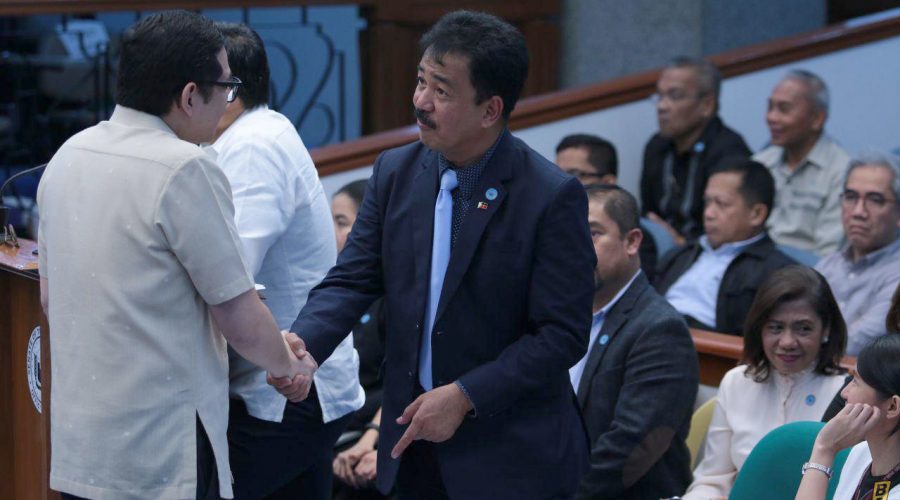

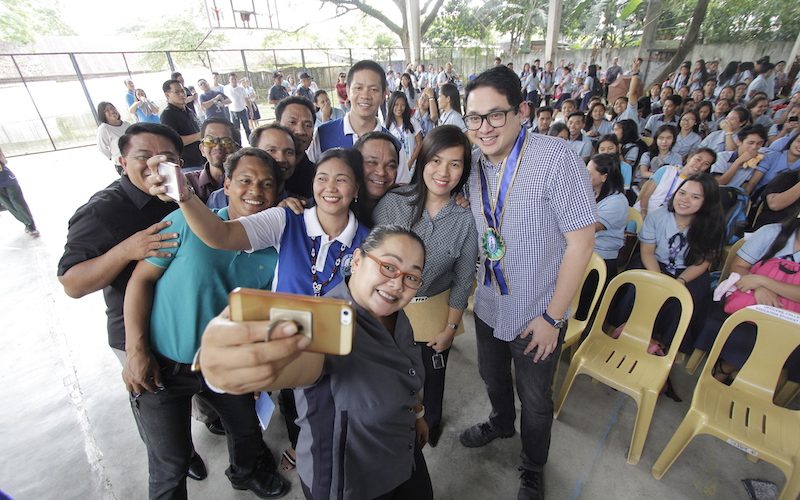
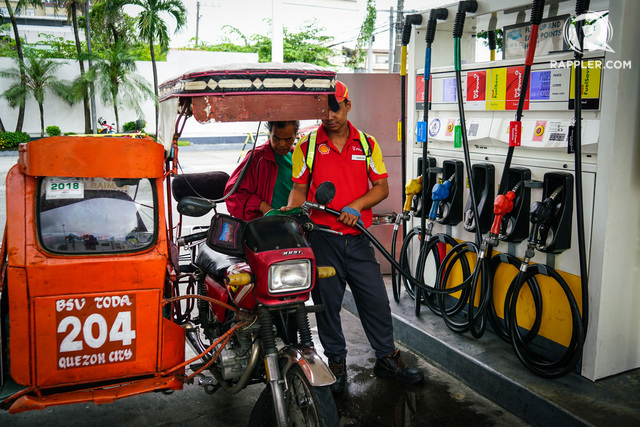
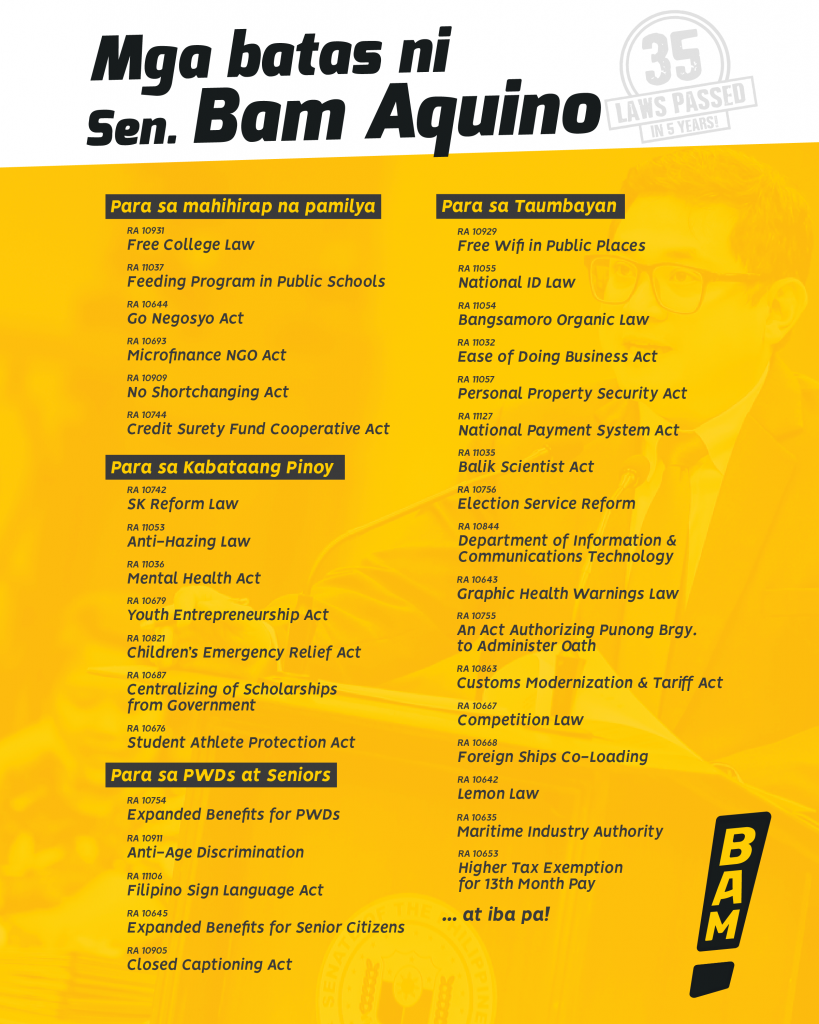
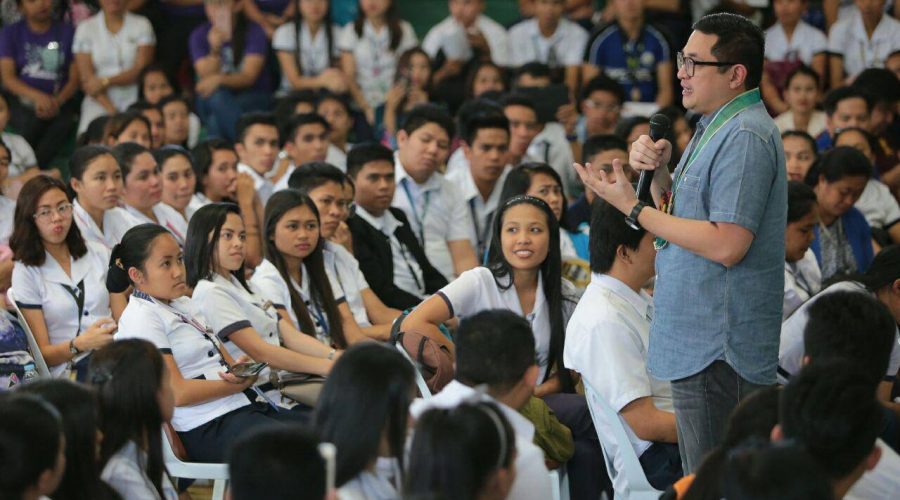
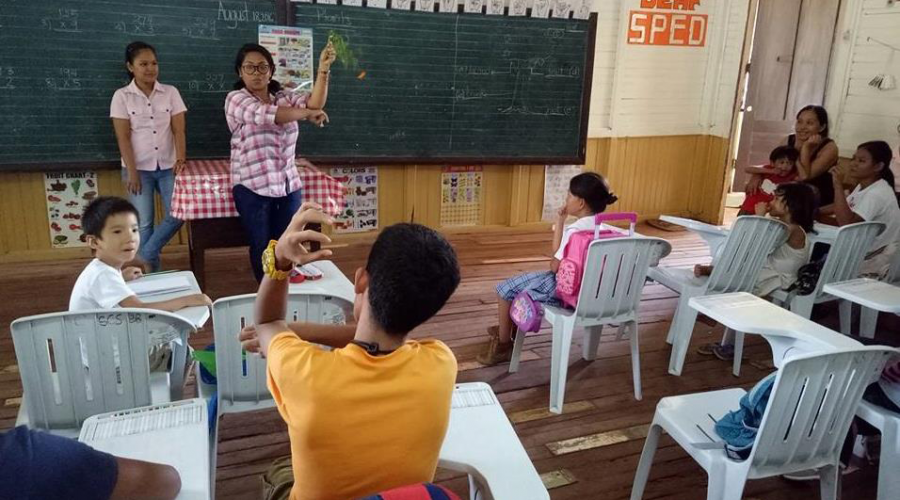

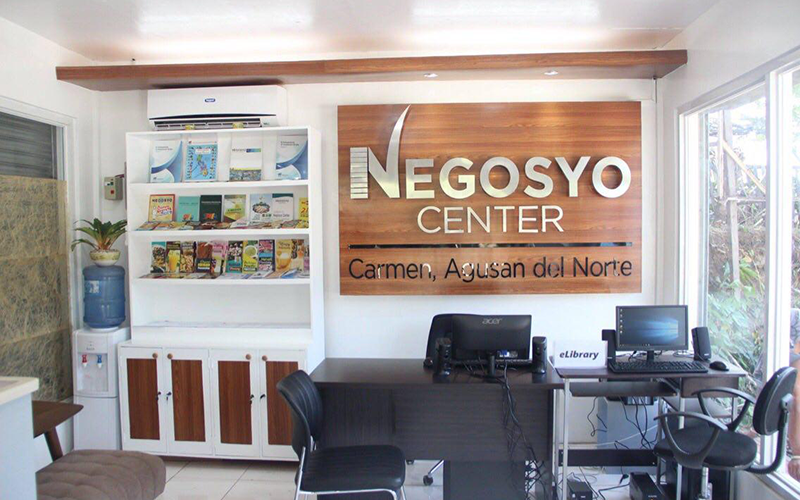
Recent Comments